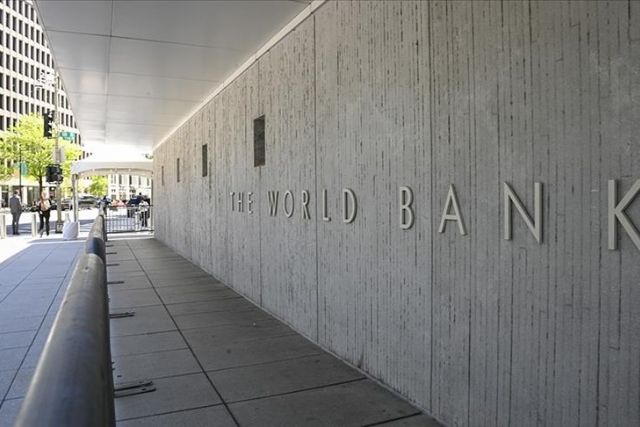OPINION - This time we know
Resurgent nationalism in Belgrade, its proxy regime in Banja Luka at the center of a crisis threatening to unravel peace not only in Bosnia but also farther afield

The author is the director of the Srebrenica Memorial Center. A part-time lecturer at the International Relations Department of the International University of Sarajevo (IUS), Suljagić is also the author of two books: Ethnic Cleansing: Politics, Policy, Violence - Serb Ethnic Cleansing Campaign in former Yugoslavia and Postcards from the Grave.
SREBRENICA, Bosnia and Herzegovina
Trouble is brewing in Bosnia. Not as a state – Bosnia's legal foundation has been internationally recognized and has continued to solidify in the years since the war. While it is true that a quarter-century of international state-building efforts have often resulted in weak institutions, they are still sufficient to prevent the state's disintegration. However, new trouble is brewing on Bosnia's horizon.
The Yugoslav crisis started exactly 30 years ago. In October 1991, Croatia was in flames. Yugoslav National Army troops, state-security units from Serbia masquerading as “paramilitaries,” and Serbs recruited from Serbia and Bosnia and Herzegovina were razing the country, culminating in the eliminationist massacre of Croatian war prisoners and civilians in Ovčara, a town outside of Vukovar, after a protracted siege in November 1991.
Now, thirty years later, resurgent nationalism in Belgrade and its proxy regime in Banja Luka is at the center of a crisis threatening to unravel the peace not only in Bosnia and Herzegovina but also farther afield. The country is in a deadlock: the virulently nationalist Milorad Dodik – prone to frequent and vulgar Islamophobic attacks – is poised to pull all Serbs out of Bosnia and Herzegovina's military, judiciary, intelligence, security, and financial institutions. He intends to re-establish them as “Serb-only” institutions within the Republika Srpska entity. He claims these changes will go into effect by the end of November at the latest through the Bosnian Serb parliament.
Mr. Dodik is borrowing directly from Slobodan Milošević's and Radovan Karadžić's playbook. These men spearheaded joint criminal enterprises in the 1990s that resulted in the state's dissolution, abhorrent crimes against humanity, and genocide. This time, Mr. Dodik's threats are more concrete: in a recent press conference, he openly and in detail discussed blockading barracks and military installations of the Armed Forces of Bosnia and Herzegovina.
I've watched and listened to Milorad Dodik reflect on late 1991 and early 1992 for three decades. It is clear that a combination of Bosnians' disbelief and denial and international cynicism and duplicity led to genocide here in the nineties.
But this time, we know things that we did not in 1991.
One, if these threats continue and the international community refuses to honor their commitments to the Dayton Peace Agreement, we will have to ask them to get out of the way. Never again will criminals climb the hills of Sarajevo and shoot our children. Beginning with the Berlin Congress, every major crisis in Bosnia and Herzegovina and every regional political arrangement has resulted in systematic discrimination and oppression of Bosniaks. For us, the dissolution of Yugoslavia meant genocide. The scenario that Mr. Dodik now hopes for – one in which he establishes an unrecognized, de-facto, Serb-dominated entity similar to Transnistria – is an existential threat.
Two, we know the price. Mono-ethnic institutions like the ones Mr. Dodik plans to re-create were vehicles for genocide in the 1990s. Police, military, intelligence, and security services were at the center of organized and systematic violence against non-Serbs. These institutions considered Bosniaks' existence an existential threat. We would be their enemy by default.
Three, we are in this for the long haul. Bosnia as a state has been around for a long time. In the 1990s, it was under a siege like no other in modern history, but it still has bounced back. It returned from the verge of destruction in 1992 and from being robbed of military victory in 1995. All the major central decision-making institutions are in the capital city or can easily and safely be transferred to Sarajevo. Bosnia also has contiguous and easily defensible territory, with two major airports and several military installations that will remain firmly under Sarajevo's control in the case of an open-armed rebellion.
So, there we are. That is the current state of play. And, most important, we know something else this time: if we fail to deter these threats, the ultimate price we will pay is another Srebrenica.
*Opinions expressed in this article are the author's own and do not necessarily reflect the editorial policy of Anadolu Agency.





